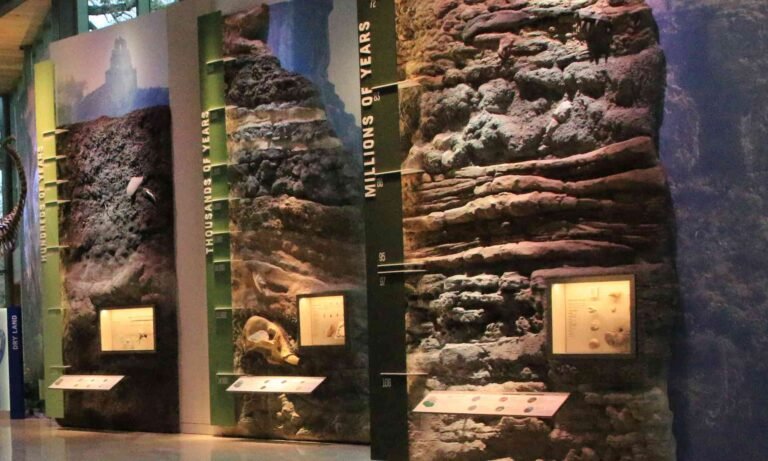The concept of unchartered realms goes beyond unexplored physical territories. In various fields, its meaning shifts, revealing the depth and complexity of the idea. In geography, it refers to regions still unmapped or only partly understood – remote mountains, dense rainforests, deep-sea trenches, or polar zones. Despite advanced technology and modern mapping tools, some areas remain elusive. These places spark curiosity and remind us that Earth still holds frontiers. They also show how much of the vast natural world remains Beyond Known.
- In geography, unchartered realms refer to regions on Earth that remain unmapped, unexplored, or only partially understood. These areas might include remote mountain ranges, dense rainforests, deep-sea trenches, or isolated polar zones—places difficult to access due to harsh climates, rugged terrain, or remoteness. While satellite imagery and modern mapping tools have illuminated much of the planet, some pockets still elude detailed study. These regions inspire curiosity and a spirit of adventure, serving as reminders that the Earth still holds frontiers where discovery is possible and nature remains largely untouched by human influence.
- In the realm of science, unchartered realms represent theories or phenomena that have not yet been thoroughly investigated or understood. This includes frontier fields such as quantum physics and biotechnology, where emerging discoveries continuously challenge existing paradigms and offer glimpses into possibilities that were previously unfathomable. The pursuit of knowledge often leads scientists to uncharted terrain, where rules and principles may shift, demanding a reevaluation of accepted facts. The commitment to exploring these scientific unchartered realms reflects human resilience and capacity for innovation.
- Moreover, in the context of personal development, unchartered realms can signify aspects of the human experience that individuals have yet to explore within themselves. These might include unfamiliar passions, unexplored talents, or the pursuit of new perspectives that carry the potential to enrich one’s life. Personal transformation often requires venturing into these lines of uncharted personal growth, allowing individuals to discover hidden strengths and broaden their understanding of themselves and their capabilities.
In essence, unchartered realms encompass a multitude of interpretations across different fields, each representing untested ideas, unknown theories, and unexplored dimensions of the human condition. Whether geographic, scientific, or personal, these realms symbolize the boundless potential for exploration and the continual quest for knowledge in our lives.
“Chase a butterfly and you will discover the joys of wandering into uncharted trails.”
– Vinita Kinra
Historical Context and Exploration
The exploration of unchartered realms has significantly shaped human history and culture. From the earliest times, humanity exhibited a profound desire to venture beyond familiar territories. Ancient civilizations such as the Egyptians, Greeks, and Romans engaged in exploratory expeditions, mapping coastlines and expanding their knowledge of the world. For instance, the Phoenicians, skilled navigators of the ancient Mediterranean, are recognized for their extensive maritime journeys that facilitated trade and cultural exchange. Their excursions into unknown waters laid the groundwork for future explorations and highlighted the importance of curiosity and adaptability in the face of uncertainty.
As the Middle Ages transitioned into the Age of Discovery, key figures like Christopher Columbus and Vasco da Gama embarked on daring voyages across uncharted oceans. These explorations not only revealed new lands and resources but also served as a catalyst for the globalization of trade and cultural exchange. Columbus’s expeditions significantly impacted European perspective on geography, illuminating the existence of the Americas and altering the course of history. Meanwhile, Vasco da Gama established a sea route to India, enhancing European access to valuable spices and transforming global trade networks.
In the modern era, exploration has transcended terrestrial boundaries, venturing into outer space. The mid-20th century marked a pivotal junction in exploration history with the advent of space travel. The launch of Sputnik by the Soviet Union in 1957 represented humanity’s first steps beyond Earth’s atmosphere. Notable missions, such as Apollo 11 in 1969, which landed the first humans on the Moon, further underscored the relentless pursuit of knowledge beyond the known horizons. The ongoing exploration of Mars and beyond embodies humanity’s enduring quest to explore unchartered realms, driven by scientific inquiry and the innate desire to expand our understanding of the universe.
The Importance of Venturing into Unchartered Territories Today
In an age characterized by rapid advancements in technology and constant accessibility to information, the significance of exploring unchartered territories has never been more pronounced. This exploration is not merely confined to geographical boundaries, but extends to realms of knowledge, innovation, and creativity. Unchartered territories represent areas where existing understanding is incomplete or lacks exploration, making them ripe for discovery and insight. They challenge conventional thinking and invite bold inquiry, often requiring individuals to question assumptions and embrace uncertainty. In doing so, they become catalysts for progress, pushing the boundaries of what is known and what is possible.
The necessity for innovation across various fields, including science, medicine, and even the arts, underscores the importance of venturing beyond the familiar confines of established knowledge. For instance, breakthroughs in technology often emerge from a willingness to explore unconventional ideas and to defy traditional thinking. A prime example can be seen in the realm of artificial intelligence, where researchers are continually pushing boundaries to create systems that can learn and adapt autonomously. By pursuing uncharted pathways, individuals and organizations can unlock new potential, leading to advancements that reshape entire industries.
Culturally, exploration fosters a broader understanding of the world, encouraging diversity and the exchange of ideas. As societies become increasingly interconnected, the ability to appreciate and learn from different cultures is paramount. Venturing into uncharted cultural territories can dismantle stereotypes, build empathy, and foster cooperation among global citizens. This exchange of perspectives enriches communities and widens the horizons of knowledge.
Stepping outside one’s comfort zone is crucial for personal growth. Individuals who embrace the challenge of exploring new environments, whether through travel, learning, or engaging with different communities, often find profound developmental experiences. Such endeavors encourage adaptability, resilience, and a deeper understanding of oneself and others. Thus, the importance of venturing into unchartered territories is multifaceted – it drives innovation, nurtures cultural understanding, and cultivates personal growth, all of which are essential in today’s rapidly changing world.
Future of Unchartered Realms: Opportunities and Challenges
The exploration of unchartered realms presents a vast landscape of both opportunities and challenges. As humanity continues to push the boundaries of knowledge and discovery, we find ourselves on the brink of potential breakthroughs that could redefine our understanding of the universe. Advances in technology, particularly in fields such as artificial intelligence, space travel, and biotechnology, are paving the way for remarkable discoveries in previously unexplored territories. These opportunities not only hold the promise of scientific advancement but also have the potential to revolutionize our daily lives and industries.
For instance, the ongoing exploration of outer space has opened discussions surrounding the potential for colonization of other planets, which could significantly alleviate the challenges posed by overpopulation and resource depletion on Earth. Furthermore, the investigation of deep-sea ecosystems uncovers unique species and biological processes that might inspire innovative solutions to pressing global issues, including climate change and health crises.
However, navigating these unchartered realms is not without its hurdles. Ethical dilemmas often arise when considering the implications of our explorations and the technologies we deploy. Questions regarding the treatment of extraterrestrial environments and the impact of human activities on delicate ecosystems are becoming increasingly pertinent. As we embark on our quests for knowledge, it is essential to balance our ambitions with a responsibility to protect and preserve these realms for future generations.
Moreover, environmental concerns must be addressed as we delve deeper into the unknown. The balance between expansion and sustainability is crucial in ensuring we do not compromise the very ecosystems we hope to learn from. The future of unchartered realms lies in our ability to harmonize technological advancements with ethical considerations and environmental stewardship. As such, it inspires individuals to ponder their personal journeys into the unknown, reflecting on humanity’s collective future in this ever-expanding frontier.
What’s More
The posts in My Blog feature reflective, story-driven pieces rooted in personal and societal insights.
The topics in My Interests explore abstract, philosophical ideas and their cultural and societal impact.
👁️ 9,264 Views



















